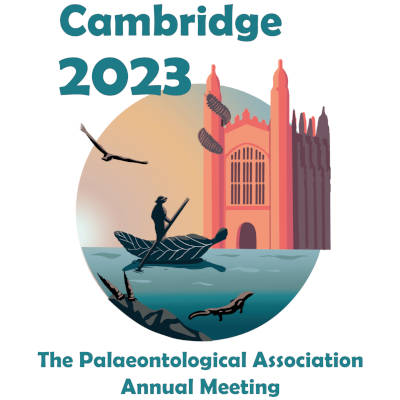Registration
Registration and abstract submission are now closed. Please email annualmeeting2023@palass.org if you would like to be added to the waiting list for any of the tours, workshops, field trip, or annual dinner, or if you would like to change any aspect of your registration.
International delegates
Delegates from the EU, Iceland, Liechtenstein, Norway or Switzerland do not need a visa. Nationals of certain other ‘non-visa’ countries such as the USA, Australia and Brazil can request a visa on arrival in the U.K. All other nationalities must apply before travelling: you can check whether you will require a visa on the UK Government website.
Abstract Submission
Delegates will be notified in early July, via e-mail, regarding acceptance of their abstracts. The decision of the organisers is final.
General Guidance
Deadline for abstract submission: 23:59 BST Friday 09th June (i.e. before 10th June). After this date abstracts will not be considered.
Eligibility of presenters for President's and Council Prizes: The President's and Council Prizes are awarded for the best talk and poster, respectively, at the Annual Meeting. All student members of the Palaeontological Association, and all members of the Association who are early career stage researchers, i.e. those within one calendar year of the award of a higher degree (PhD or MSc) are eligible for consideration for these awards. If you do not wish for content from your poster or talk (or specific slides therein) to be shared electronically or on social media, please use the PalAss social media symbols in your presentation.
Regular talks and Symposium talks
Please prepare your presentation in Windows PowerPoint, PDF format, or export your document into one of these formats and ensure that all files and slides are still compatible. If you are using a Mac please check your presentation on a Windows PC prior to the meeting, as this is the system we will be projecting from.
Regular and Symposium talks are each allocated a 15 minute slot, comprising 12 minutes for the talk and 3 minutes for questions and switching between speakers. There will be no lightning talks at the 2023 Annual Meeting.
Speakers are kindly asked to stick to time to allow for interaction with the audience. Please prepare your talk to allow for questions using the above timings
Posters
Posters should be prepared in A0 portrait format. Landscape format and larger formats will not be accepted. Delegates can watch the YouTube videos prepared for the 2021 meeting to learn more about poster preparation and judging (see the Association's YouTube channel).

